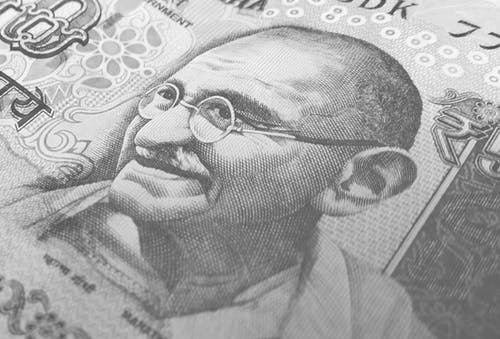I had recommended buying the Indian rupee at 69.25 as I expected the Union Budget to focus on fiscal prudence since the BJP’s landslide election win meant Prime Minister Modi did not have to appease his vote banks in the Hindi “cow belt”. The Indian rupee is now 68.40 as I write, the macro momentum argues that the rupee can well appreciate to my strategic target of 65 by April 2020 ceteris paribus, even though all other things are never equal in the financial markets.
The new fiscal budget deficit target is now 3.3% of GDP and $65 Brent will prevent significant deterioration in the current account deficit. As I expected, global bond investors loved the budget and ten-year Indian G-Secs slipped 15 basis points after its announcement, a ballast for the rupee. Indian equities, on the other hand remain under pressure due to the shadow banking crisis and the Yes Bank debacle.
Dalal Street expects the BJP, with his political dominance in the Lok Sabha, to liberalize FDI rules and even float an inaugural $10 billion sovereign bond in the global capital markets, both rupee positive factors. Seasonal trade patterns (Apple exports Indian made iPhone!) also reinforce my bullishness on the rupee in 2H 2019. If US-Iran tensions in the Gulf ease or the OPEC/Saudi-Russian output cut pact breaks down, crude oil can well fall to $10 a barrel, a $15 billion steroid shot for the Indian balance of payments (the improvement in the current account offsets by lower worker remittances from the GCC).
The systemic debt crisis and criminal looting in Indian banking and finance has taken its toll on public sector banks, ICICI (Chanda Kochar scandal), the Punjab National Bank fraud and the NBFC debacle. Yet Yes Bank’s spectacular collapse after founder/CEO Rana Kapoor’s ouster by the RBI takes the cake. Yes Bank shares have lost a shocking 70% of their value since April. The bank’s Basel Tier One capital ratio is below 8%, as provisioning for toxic loans have wiped out shareholder equity. Book value is a joke concept once a commercial bank is looted by insiders. Yes Bank faces the mother of all trust deficits in India and global wholesale funding markets – the 40 bagger fairytale princess of Dalal Street turned out to be a hairy, ugly, monster that eats naïve FII’s for breakfast!
Are Yes Bank shares a buy at 92 rupees? No. If the RBI does not recapitalize the bank soon, shareholder equity will be totally wiped out. India faces not one but a dozen Lehman moments after the shocks of IF&LS, Yes Bank and Dewan Housing. Even the venerable State Bank of India has a shocking 7% plus non performing loan ratio. There is no chance that Yes Bank will be able to raise the $4 billion capital need to resurrect this financial zombie, despite CEO Ravneet Gill’s best efforts. Dodgy loans to insolvent corporates, busted conglomerates, the suicidal exposure to real estate (sounds very familiar, habibi?), nepotistic management and idiotic regulators (there are none so blind as those who refuse to see) have created a banking Frankenstein in India. Fake accounting and inflated valuations of property only postpone the inevitable systemic financial collapse but can never avert it.
Yes Bank is no Mickey Mouse institution but the tenth largest bank in India. It is horrific that the RBI only forced it to disclose non-performing loans two years ago – and NPL’s are now nine times higher than those amounts reported in 2016 audited accounts. The conclusion is unmistakable. Bank management systemically lied to investors and regulators, aided by the best accountants money can buy. No wonder RBI ousted Rana Kapoor, a familiar face in Dubai’s South Asian high society (LOL!) circles, as Arif Naqvi was in his pre-Wandsworth Prison heyday. Yes Bank’s ties to politicians, property developers, loan fixers and NBFC crooks will deepen India’s credit crunch. A bank’s loan book with 20% real estate loans (sounds familiar again habibi?) is a financial time bomb waiting to explode – and the endgame for Yes Bank could well be a depositor run or a shotgun marriage to another major bank.
Funding costs for India’s dodgy shadow banks are going to rise a lot higher. IF&LS and Dewan Housing were only the tip of the iceberg. The corruption in Indian finance and banking is both endemic and systemic. O’Crooks of Hindustan, Gurujis of the financial chor bazzar, why rob a bank when you can so easily become the founder of a bank?







